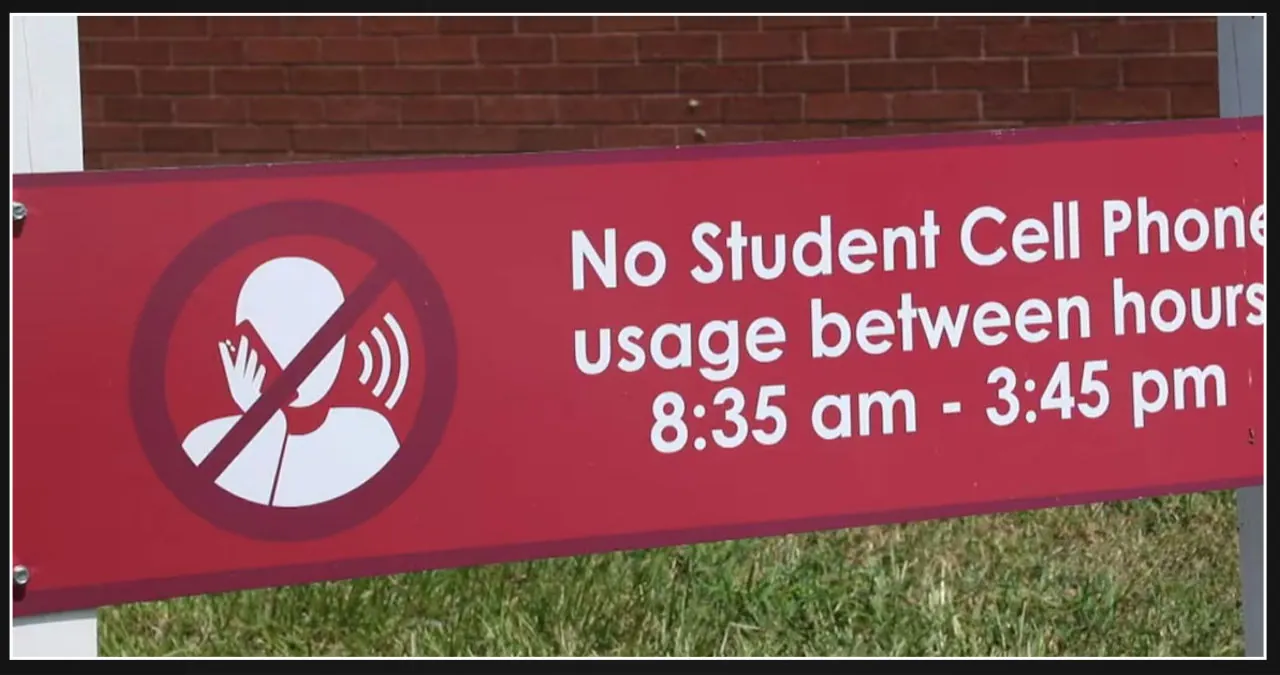South Carolina students from kindergarten through high school will be greeted with a significant change when they return from their winter break in Columbia, S.C.
In January, every public school district in the state must begin enforcing a ban on student cellphones, if they haven’t already done so.
Lawmakers added a temporary provision in the current state budget earlier this year. The provision instructs school districts to develop and implement a student cellphone policy by the second half of the 2024-2025 school year.
Months before the directive was issued from the State House, Rock Hill Schools implemented its own policy.
Lindsay Machak, the Executive Director of Communications and Marketing at Rock Hill, stated that the educators had been providing feedback to the superintendent and school board members regarding the disruption caused by cell phones in the classroom.
From August 2023 onwards, Rock Hill Schools implemented a new policy requiring students to power off and stow away their phones from the start of the school day until dismissal.
Machak expressed that initially, there was a sense of angst, anxiety, and dismay regarding the impending change. However, once the process began, they realized that it was actually manageable and not as daunting as they had anticipated.
Rock Hill’s policy is essentially the rule that students across South Carolina will have to adhere to, beginning in January: Devices will not be accessible during the school day.
This policy covers a wide range of electronic devices, including cellphones, smart watches, tablets, and gaming devices. However, there are a few exceptions to this rule, such as allowing their use for educational purposes.
According to State Superintendent of Education Ellen Weaver, the aim of this measure is to provide students with the gift of focus rather than taking something away from them. She stated, “What we know we’re doing here is giving students the freedom to focus.”
In the recent months, the State Board of Education has implemented a comprehensive model policy that emphasizes the importance of maintaining a focused learning environment from the beginning to the end of each class session. All school districts are required to adhere to this policy and ensure that their individual policies are at least as stringent as the state’s guidelines.
Exceptions will be made for students with IEPs and medical plans if they require the device for medical or educational reasons. Similarly, students who are volunteer firefighters or serve in emergency organizations may also be granted permission by their district superintendent.
Some school districts may choose to implement more stringent measures or impose their own limitations on students regarding the use of their phones on buses or during afterschool activities.
Students who break the rules are also given the authority to determine the consequences.
“We have been consistently urging districts to consider policies that focus on removing phones from the equation rather than removing students from the classroom,” Weaver explained. “As this policy is implemented in January, we will closely monitor its effectiveness over the next few months of the second semester. By evaluating its implementation, we will be able to provide districts with valuable insights and make further recommendations to refine their policies.”
Rock Hill leaders claim that their policy, which has been implemented for three semesters, has resulted in noticeable changes in behavior.
According to Machak, the pandemic caused a lot of kids to rely on devices and not engage in face-to-face communication. However, now that things are starting to return to normal, Machak has noticed a positive change in behavior. Students at the high schools are now reconnecting with each other over books, engaging in conversations, and truly enjoying the experience.
If districts do not adopt and follow a local cellphone policy, they may jeopardize their state funding.
According to Weaver, the Department of Education will be actively communicating with districts and teachers to ensure the proper enforcement of these policies.

